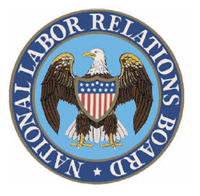Those of you who have watched the National Labor Relations Board (NLRB)—the nation’s primary enforcer of labor law—over the years no doubt expect it to reshuffle its priorities when the White House changes parties. The Board swore in Jennifer Abruzzo as its new general counsel (GC) on July 22, 2021, and three weeks later, she released an internal memorandum blueprint for changes to the law she would like to see the agency implement. 
GC’s Memorandum Isn’t Binding
Abruzzo’s memorandum isn’t binding, and it isn’t a perfect picture of how labor law will change. Instead, it’s a list of issues the GC wants to tee up for the agency’s other political appointees, namely the five members of the Board itself, who can change the law. To enact a change, they must either publish a new rule or decide a case on the topic.
The GCs usually can’t present all of their priority issues to the NLRB before it changes party control again. Also, even when the Board considers an issue, there’s no guarantee it will agree with the leader’s position or that a federal court will enforce its decision on appeal.
Nevertheless, Prepare for the Following Changes
The GCs are usually able to accomplish most of their priorities, however, and the NLRB often makes the changes retroactive to all pending cases. Therefore, you should study Abruzzo’s memo carefully and consider how to prepare for changes such as the following:
Employee handbook and technology rules. The NLRB restricts what employers (union and nonunion alike) can include in employee handbooks and other policies. In 2017, the Board released a new framework for evaluating handbooks that gave employers greater latitude and certainty. At the time, it also required employers to let employees use work e-mail for union organizing but ended the practice in 2019.
The new memorandum strongly suggests Abruzzo will ask the NLRB to tighten restrictions on employers once again, which would have wide-ranging impacts on work rules, confidentiality agreements, employee speech in the workplace, and nondisparagement provisions. Further, the memo shows the GC may seek to reopen work e-mail to employees seeking to organize and expand the toolkit to include other platforms such as Discord, Slack, and Groupme. The changes could come at a time when employers are still recalibrating policies and technologies to accommodate more remote work and better protect employees’ health and safety.
Union organizer access to employer property. Just as the pandemic prompted more remote work, it caused employers to restrict access to its physical locations. The issue was already in flux in labor law, which in 2019 shifted to let employers exclude union representatives from public areas of their property under certain circumstances. But the memo shows the GC will call for the NLRB to reevaluate that interpretation.
Employer ability to make changes during life of union contract. In 2019, the NLRB gave employers more flexibility to make changes during the life of a union contract. Specifically, it provided an alternative to showing the union had “clearly and unmistakably” waived its right to bargain over such changes. Under the alternative, an employer need only show the contract “covered” the topic at issue.
The new memorandum signals the GC will return to the previous standard, which makes it more difficult to make changes during the life of a union contract.
Arbitration agreements and class action waivers. In 2019, the NLRB decided employers may discipline employees who refuse to sign a mandatory arbitration agreement and may promulgate class action waivers in response to union (or union-like) activity. The new memorandum calls for the Board to reevaluate the ruling.
Even if you have closely followed recent changes to the National Labor Relations Act (NLRA), you should review Section B of Abruzzo’s memorandum, which targets areas of the law that haven’t changed in recent years. One example is extending Weingarten rights, which allow employees to request representation in investigatory interviews and issues related to employee status and classifications.
Bottom Line
Overall, you can use Abruzzo’s new memorandum not only to predict what might change in labor law during the current administration but also to get ahead of the revisions.
Ryan J. Funk, Matthew A. Fontana, and Carita Austin are attorneys with Faegre Drinker. You can reach them at ryan.funk@faegredrinker.com, matthew.fontana@faegredrinker.com, and carita.austin@faegredrinker.com.
